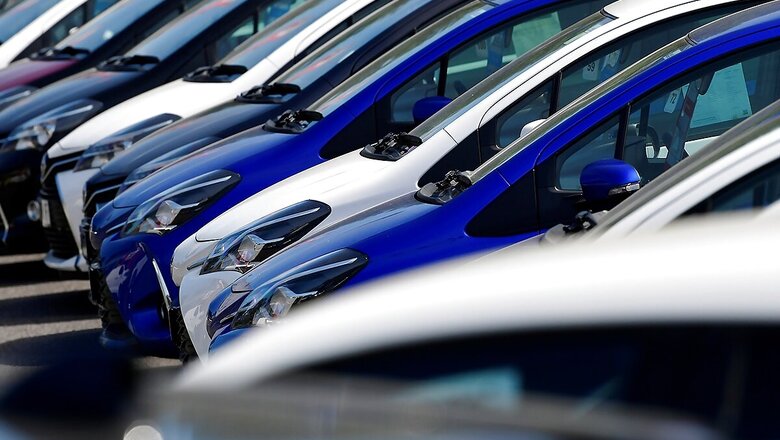
views
The impact of COVID-19 on industries worldwide has been so severe that the market now refers to a pre-COVID and post-COVID period. It’s no different with India’s used or pre-owned cars segment. In 2019, the pre-owned car market in India was valued at $24.24 billion and slated to grow at 15.12% CAGR. Driven by tailwinds from the pandemic, this rate is expected to see a spike in the post-COVID era. Moreover, well-maintained pre-owned car supplies rose when the average ownership period fell to 2-4 years from the earlier 6-7 years.
It is true that we have had to live with traditionalists thinking that a used car is inauspicious, and won’t augur well for a family’s fortunes. But the graver perception, that the pre-owned industry business would have to work around in order to survive, is that a used car dealer is unscrupulous, and that in the unorganized market, you don’t really know what you’re buying.
However, against all such traditionalist views and the industry looking towards a much organised approach, even before the coronavirus outbreak, pre-owned cars were recording higher numbers than new cars. The pre-owned car market was 1.3 times that of new vehicles. And as per market analysts, this segment is expected to account for around 75% of the total automotive sector transactions in India by 2025.
Main Motivators
The market also received a fillip when GST on used cars was reduced to 12-18% from 28% earlier. As more organised players enter the market, sales are bound to increase further in the days ahead.
Aspirations and locations are some of the motivators in fuelling the industry’s growth. For buyers from the metros, the main desire is to save money. Where tier 2 and tier 3 cities’ buyers are concerned, it is the aspiration of owning pre-owned vehicles that offer better spending returns. The desire of opting for personal mobility in the form of a car is so strong that half of the buyers in the used-car segment hail from non-metro cities.
The pandemic is expected to hasten the rise of the pre-owned cars market. Part of this is prompted by behavioural changes induced by COVID-19’s social distancing norms. Since there are higher risks of transmission in public spaces and mass transport continues to be uncertain, people now prefer to commute by self-owned vehicles. Even when public transport returns to normal schedules, the risk from crowded commutes will remain.
Additionally, pandemic-related disruptions have led to financial reductions in some cases. In such scenarios, used cars are the best affordable option to stay safe while moving outside the home. Also, it’s a safer choice than hiring a cab as there is no risk of transmission from unknown drivers.
Other Drivers
Another impact of the outbreak would be an increase in first-time buyers preferring to purchase used cars. Such a trend applies to both mid- and premium-segment pre-owned cars too, particularly for large families that can afford to maintain multiple cars. All these factors can boost the sales of used vehicles.
A reduction in discretionary spends in the post-COVID era will also propel a greater growth in both the organised and semi-organised used-car segments. The advent of BS-VI norms after April 2020 onwards has also augmented the price proposition of used cars.
Meanwhile, during the lockdown, research and rating agency CRISIL’s market survey predicted a rise in commuter preference for commuting by owned vehicles. Almost 55% of surveyed commuters indicated they would prefer travelling by their own cars once cities opened up. A substantial section among these said they were thinking of purchasing a pre-owned car.
Furthermore, more used cars would be put up for sale since those used earlier in shared mobility keep having less business due to pandemic-related constraints. As a result, their owners would prefer to cut their losses by selling them.
It’s also important to bear in mind that as India’s used car market is largely unorganised, thanks to unrecorded numbers, the actual growth figures may be much higher.
In the interim, car dealerships are reportedly revising post-COVID sales strategies, given the tilt in consumer preference for used cars. Some dealers are even stated to be tweaking compensation plans of sales representatives, moving from the value of the cars sold to the number of those sold. This is aimed at reducing inventory and space pressure.
The strict emission norms mandated for BS-VI cars will also be reducing consumer interest in new cars. Considering these factors, car manufacturers too may pay more attention to their pre-owned car business. As pre-owned cars ensure better returns, car dealers are reported to be targeting aspirational customers from tier 2 and tier 3 cities by establishing smaller showrooms and using regional marketing plans while offering pre-approved financing schemes.
Finally, emphasis on quality and going the extra mile for the customer will earn credibility. And trust builds by adapting to the needs of the customers with doorstep deliveries, digital sales and contactless experience amidst the pandemic. Contactless buying, sanitized test drives and deliveries in these uncertain times are essential, because a car has become an essential utility for more urban Indians than you’d think.
Also, these days everybody drives- mothers to mothers-in-law, school-leavers to retired folks, getting behind one’s own set of wheels is a mark of independence. And you don’t need a demographer to tell you that India is increasingly more urban, by the day. This, coupled with a sense of safety and a degree of self-isolation that a reliable vehicle provides, has led to a new auto mindset and used cars’ sales numbers tell the story far more eloquently.
The article is authored by Niraj Singh, Founder & CEO – Spinny, a used-vehicle platform. All views are personnel.
Read all the Latest News, Breaking News and Coronavirus News here




















Comments
0 comment